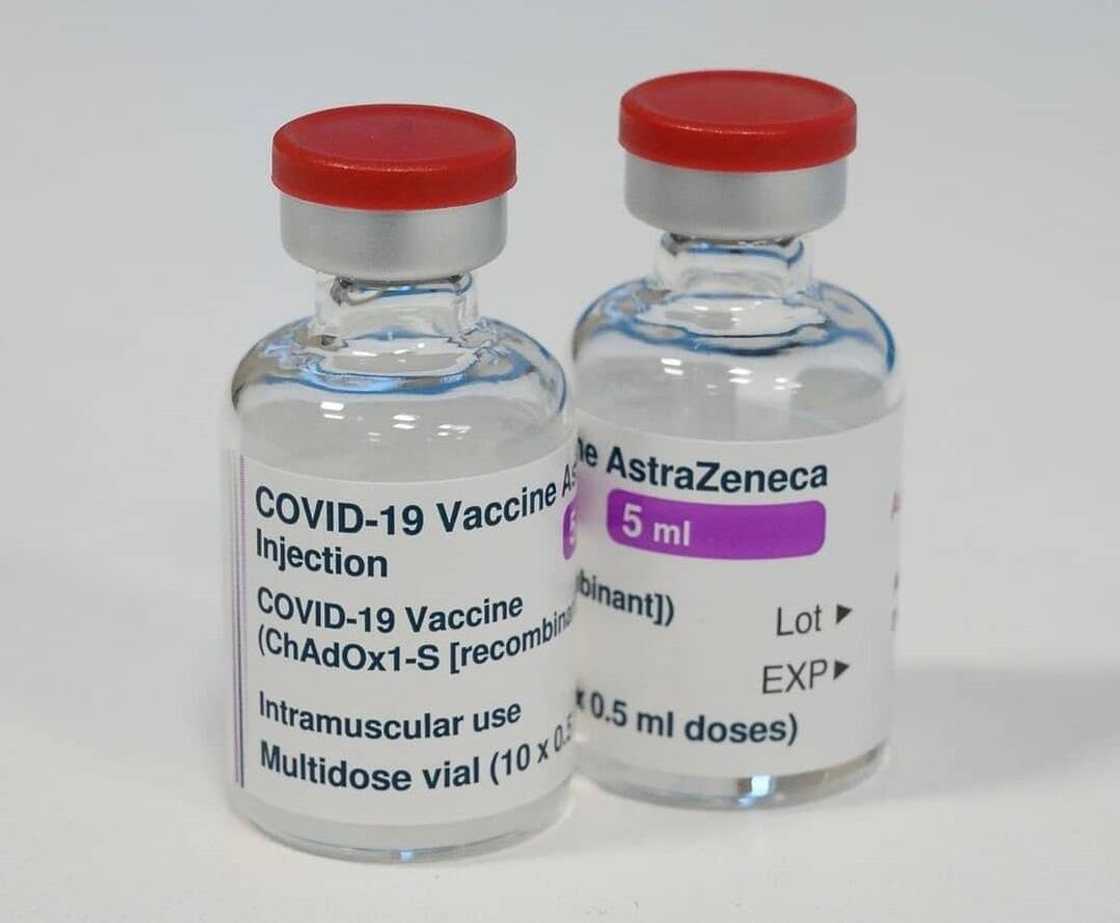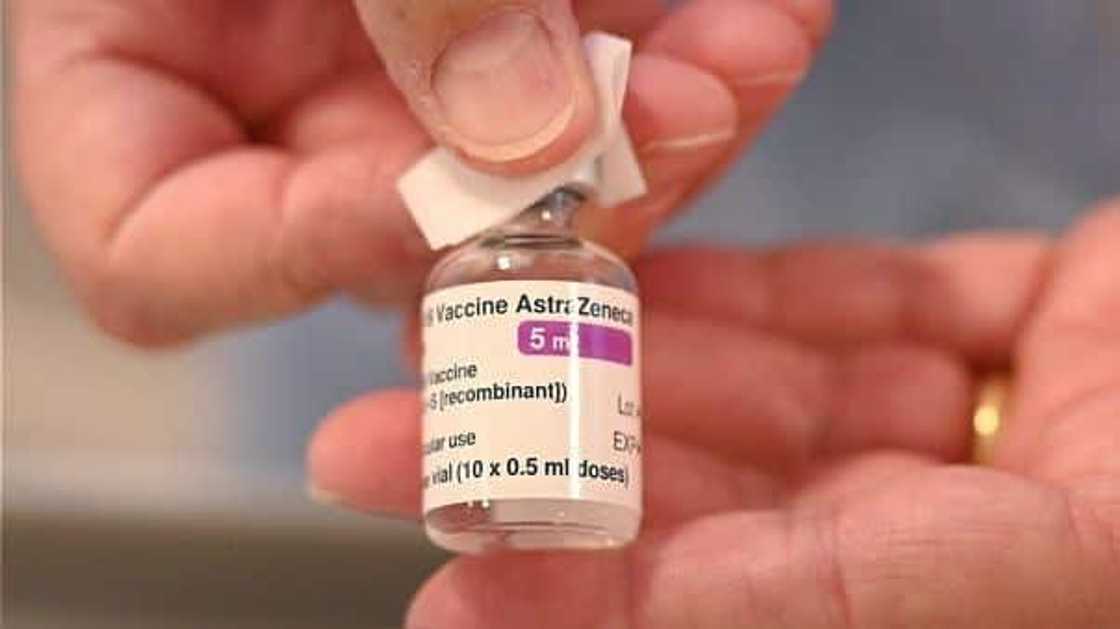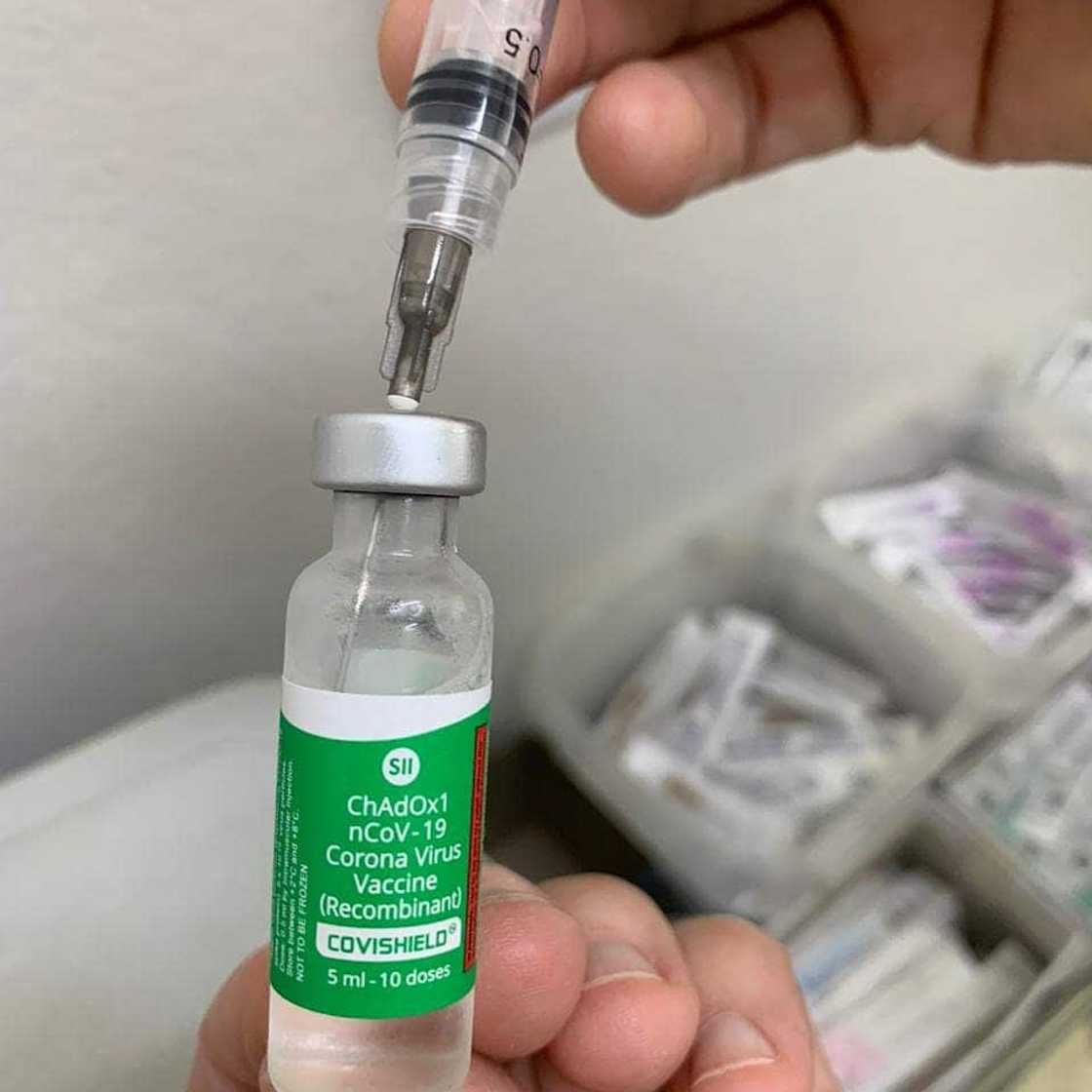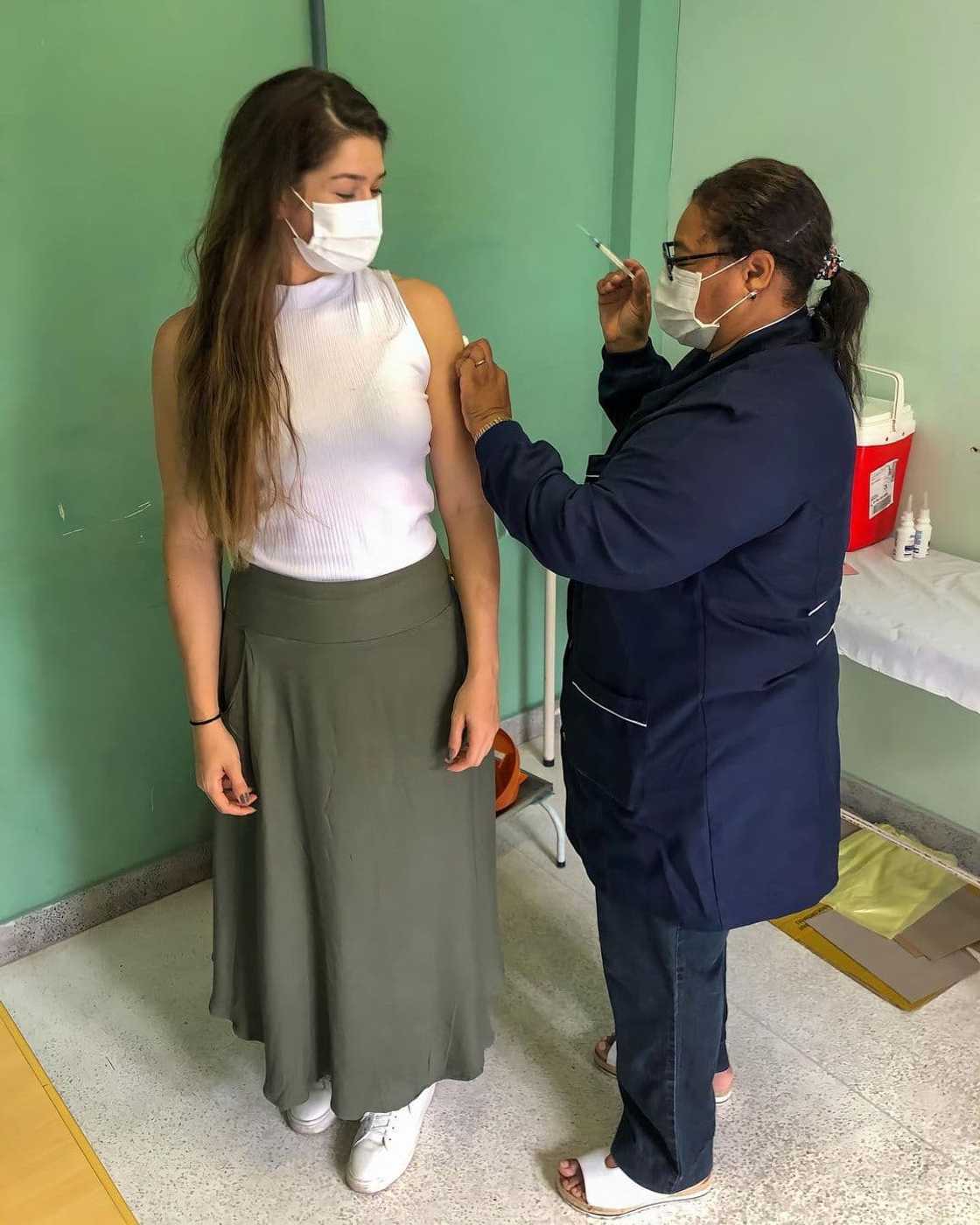The spread of the coronavirus upended our lives at the beginning of 2020.
The development of a vaccine has been regarded as our ticket back to ‘normal life’.
Unlike its competitors, it is a modified version of a common cold virus known to spread among chimpanzees.

AstraZeneca vaccine South Africa. Photo: dymphnasteph_mccrory (modified by author)Source: Instagram
South Africa recently joined the countries embracing the AstraZeneca vaccine approval, especially for emergency cases.
The move came weeks after Moderna and Pfizer were given the green light from the FDA.
AstraZeneca’s COVID-19 vaccine came as a promising sign in the rollout for global immunisation in underfunded countries.

Read also
Recombinant vaccines work by using a small piece of genetic material from a pathogen to trigger an immune response.
An example of a recombinant vaccine that is commercially available is the rabies vaccine for animals.
Is AstraZeneca the Oxford vaccine?

AstraZeneca vaccine. Photo: elpostdepanamaSource: Instagram
The Oxford-AstraZeneca COVID-19 vaccine, codenamed AZD1222, is a vaccine developed by AstraZeneca and Oxford University.
It is administered through an intramuscular injection, using a vector, the modified chimpanzee adenovirus, ChAdOx1.
The team produced the first batch of the COVID-19 vaccine that was used for clinical testing.

Read also
This means it is an altered version of a common cold virus proven to only spread among chimpanzees.
The developers of AZD1222 chose the chimpanzee adenovirus because it is new to the people being immunised.
Very few people have been exposed to the flu spread among chimpanzees.

Read also
Another dosing regimen recorded 62% efficacy when two full doses of AZD1222 were administered one month apart.
The combined analysis from the two regimens resulted in the AstraZeneca vaccine efficacy being estimated at 70%.
The vaccine dosing regimen comprises two separate doses administered between 4 and 12 weeks after the first dose.

AstraZeneca vaccine update. Photo: mpmarzolloSource: Instagram
Who Can Get the AstraZeneca Vaccine?
Clinical trials for AZD1222focused on people aged between 18 and 64 years.
Trials among children were halted in mid-December 2020.

Read also
How does the AstraZeneca vaccine compare to the Moderna and Pfizer vaccines?
Which COVID-19 vaccine is the best?
Their availability is a factor of their cost of production and their ease in transportation and storage.

COVID-19 Vaccine AstraZeneca. Photo: carolinasilveirasSource: Instagram
The Oxford-AstraZeneca vaccine is by far the easiest to transport and store.
The Pfizer and Moderna variants require subzero temperatures until they are ready for use.
Moderna and Pfizer have a slight edge in the efficacy of about 95% against the novel coronavirus.

Read also
This efficacy was obtained after administering the second shot of the vaccine in the clinical trials.
Another bone of contention when comparing AstraZeneca vaccine vs Pfizer and Moderna is the cost.
Moderna costs $33 while Pfizer costs $20.

Read also
On the other end, AstraZeneca vaccine price is approximately $4 per dose.
The prices are most likely to fluctuate as more variants evolve, and as time goes by.
The side effects are expected as your immune system is being primed.

Read also
Has anyone gotten COVID after getting the vaccine?
The results and analysis of clinical trials have prompted the approval of the coronavirus AstraZeneca vaccine.
When will AstraZeneca vaccine be ready?

Read also
The country’s president received 1 million doses at theO.R.
Tambo International Airporton Monday, 1st of February 2021.
South Africa will kickstart the vaccination campaign by inoculatingSouth Africa’s front-line health workers.
Immunisation will commence in mid-February.
What is an artificial leg price in South Africa in 2024?
Have you been contemplating on whether or not to take the COVID-19 vaccines?
Meanwhile, it is paramount to follow the stipulated COVID-19 prevention guidelines.
DISCLAIMER:This article is intended for general informational purposes only and does not address individual circumstances.
Any action you take upon the information presented in this article is strictly at your own risk and responsibility.
She graduated from Meru University of Science and Technology with a Bachelor of Technology in Civil Engineering in 2019.
In 2023, Priscillah finished the AFP course on Digital Investigation Techniques.
She has been writing articles on Briefly.co.za since 2019.
Email: pshmueni@gmail.com